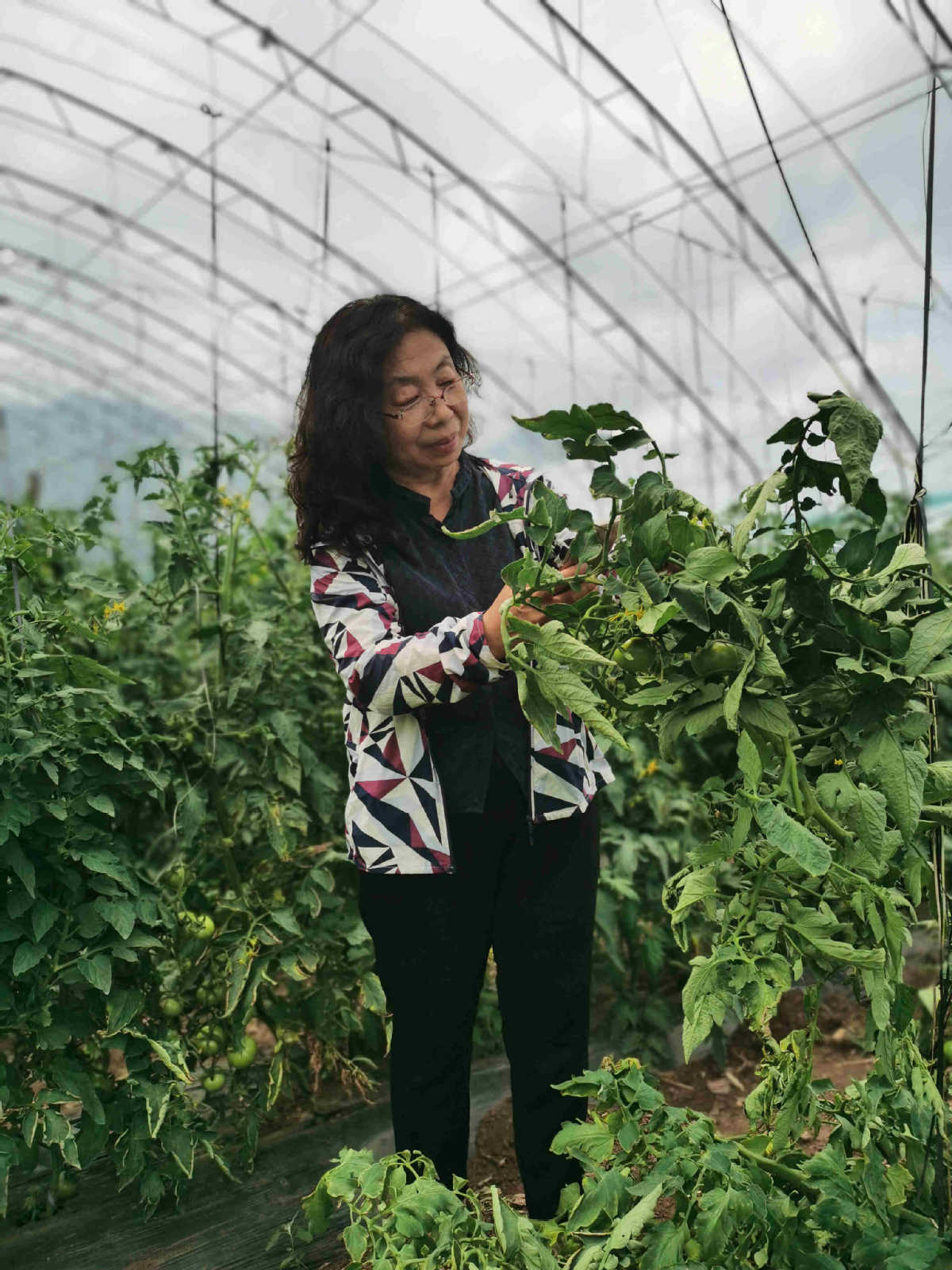Delegate shares learning from congress


Wang Xiuzhi could not wait to share what she learned as a delegate to the 20th National Congress of the Communist Party of China in Beijing, upon arrival in Chifeng, Inner Mongolia autonomous region in late October.
As a researcher at the Chifeng Institute of Agriculture and Animal Husbandry Science, Wang's sharing focused on topics of scientific and technological innovation and agricultural development, which were mentioned in the report delivered during the 20th CPC National Congress. Her audience included both scientific and technical personnel and local farmers.
Jia Zhanfeng, a local villager, said she was inspired greatly by what Wang shared from the congress.
"Thanks to supportive policies, our life is getting better and better, and our living environment has been greatly improved. Going ahead we will learn more knowledge and techniques to improve farming and contribute to rural vitalization," Jia said.
Li Yanjun, deputy Party chief of Chifeng Agriculture and Animal Husbandry Technology Promotion Center, said spreading the spirit of the congress helps provide guidance on their work to promote advanced technologies in farming and animal husbandry, and facilitates the high-quality development of the city's agriculture and animal husbandry industry.
"I will continue to convey the content and take on the congress spirit to both scientific and technological personnel and farmers, continue to teach farmer techniques to improve farming, so that science and technology can truly serve the people at the grassroots, and contribute to the rural vitalization," Wang said.
Wang said she will also innovate the form of sharing to spread the content of the congress to the field, schools, scientific research labs and rural communities.
For more than 30 years, Wang has been devoted to pepper breeding. She has bred 15 new types of peppers, which have been widely planted in 14 provinces and regions, including in Inner Mongolia, the Guangxi Zhuang autonomous region and Yunnan province.
To date, the total planting area of these peppers has reached more than 273,000 hectares, and created economic benefits worth nearly 2.7 billion yuan ($377 million).
In addition to breeding peppers, Wang has also innovated planting bases and vegetable breeding methods, which has greatly raised vegetable production volume, increased vegetable varieties and expanded planting areas.
"Vegetable growing methods and patterns have greatly changed over the past years. Today people can have a variety of vegetables on their tables all year round," she said.
Wang said that in the past decade, there has been more talent coming to her research team, their research environment has been greatly improved, and breeding methods have also been developed, thanks to the support offered by the Party and the government to scientific and technological work.
She said arable land is limited, and science and technology is the fundamental way to increase production.
"Going forward, we will implement the spirit of the 20th CPC National Congress into our daily work, improve the ability for innovation, achieve more technological breakthroughs, and step up efforts leveraging science and technology to bring more benefits to people."
- Yuyuan Garden lights up with Year of the Snake lantern installations
- New dendrobium orchid species found in Sichuan
- People welcome the New Year across China
- China's railway trips expected to hit 11.5 million on New Year's Day
- Beijing: where ancient traditions meet modern marvels
- Beijing-Tianjin-Hebei 2025 celebrations shine at Zhengding county





































